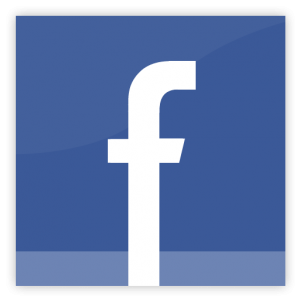Doctors on Facebook
 by Danielle Ofri
by Danielle Ofri
New York Times
When I was a third-year medical resident, an attending physician handed me his business card so that I could contact him about a patient. Printed below his phone number was something I hadn’t seen on a business card before: an e-mail address.
I thought to myself, “How pretentious!”
It’s hard to believe this occurred less than 20 years ago. Now most of my house staff wince when I suggest communicating by e-mail. E-mail is for old fogies, they imply with their body language. They prefer to text or send instant messages in the hospital, and use Facebook or Twitter with friends.
For doctors like me who have waded into social media, however gingerly, many questions arise. Is posting a medical musing or details of a recent party on Twitter or Facebook the same as chatting with colleagues while walking down the hall of the hospital? Do the same rules of etiquette and liability apply to this extremely public environment?
An highlights some of the hazards of the murky mixing of personal and professional selves that occurs in the online world. In one example, a doctor had posted photos of himself and his colleagues partying on his Facebook page. These were aid doctors providing medical care in Haiti, and the unprofessional images of drinking, carousing and posing with guns cast a poor light on what by all accounts was exemplary medical work.
The article notes how the online world facilitates “disinhibition” and how a momentary lapse can be rapidly magnified and become permanently embedded in the cyberworld. Rapid dissemination, downloading and reposting make it nigh impossible to scrub unwanted images and text from the Web. Dr. Ryan Greysen, the lead author and a Robert Wood Johnson Foundation clinical scholar at Yale School of Medicine, endorses a “think before you post” philosophy, keeping in mind that you can never tell what a friend’s friend’s friend might do with a photo, video or nugget of information.
“Think about your digital footprint,” Dr. Greysen says, “but also think more broadly. How would hundreds of posts like this reflect on the profession?”
He also notes that “violations of professionalism online are no different than violations in ‘real life’ and could be sanctioned by state medical boards.” A major concern, he says, is with the new generation of physicians and students who enter the medical world after years of saturation in social media.
Dr. Kevin Pho, a primary care doctor in New Hampshire who writes the popular KevinMD blog, maintains both a personal and a professional online presence. His professional Facebook page contains his writing and commentary and can be “liked” by anyone. He limits access to his personal Facebook page to family and close friends.
I worry that it is impossible to maintain a perfect firewall, so I’ve decided to limit my online presence to the professional side of my life, keeping personal information off the Web. And before I post anything anywhere, I try to imagine what a patient of mine might think if she stumbled across it. Would it make her cringe? Would she feel awkward during her next office visit? Would this somehow compromise our relationship?
This means letting go of the fun and casual side of social media, but I think that’s simply part of the territory of being a doctor. It’s the same reason I don’t wear flip-flops and shorts to work, much as I’d surely love to. Giving up posting vacation pictures doesn’t seem like a particularly high price.
Doctors — like everyone else — are entitled to private lives, with all the attendant warts, embarrassments and unflattering moments. But now that any patient can Google a medical team, doctors — like teachers and lawyers — need to consider issues of professionalism before sharing their private lives.
But social media has its upside, too. As Dr. Pho points out, social media “can be an effective tool to guide patients to reputable sources of information,” countering the deluge of health information on the Internet. The Web likewise holds the promise of expanding accessible channels of communication between doctors and patients, though the complexities and liabilities certainly need to be ironed out.
I’m sure there are those who view a doctor with a Twitter account as pretentious, just as I viewed my own attending 20 years ago with his flashy e-mail address. But the iterations of online technology are likely to mutate faster than our staid medical institutions can adapt. In a few years these same doctors who have embraced Twitter may be seen as hopeless Luddites. The next generation of medical students will look at us with a collective eye-roll, unable to believe that we could persist in something so artless and archaic. (from the New York Times)
